Related Research Articles

Cola is a carbonated soft drink flavored with vanilla, cinnamon, citrus oils, and other flavorings. Cola became popular worldwide after the American pharmacist John Stith Pemberton invented Coca-Cola, a trademarked brand, in 1886, which was imitated by other manufacturers. Most colas originally contained caffeine from the kola nut, leading to the drink's name, though other sources of caffeine are generally used in modern formulations. The Pemberton cola drink also contained a coca plant extract. His non-alcoholic recipe was inspired by the coca wine of pharmacist Angelo Mariani, created in 1863.
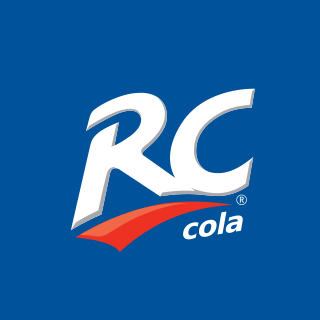
RC Cola is a cola-flavored carbonated beverage owned in the United States by Keurig Dr Pepper and internationally by RC Global Beverages, Inc.

Jolt Cola was a carbonated soft drink produced by The Jolt Company, Inc.. The cola drink was created in 1985 by C. J. Rapp as a highly caffeinated beverage. It was targeted towards students and young professionals, stressing its use as a stimulant in a similar manner as energy drinks. Its slogan reads "All the sugar and twice the caffeine!"
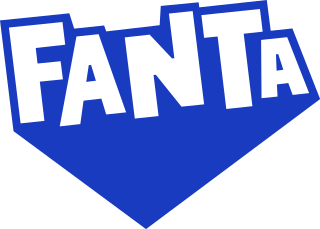
Fanta is an American-owned brand of fruit-flavored carbonated soft drink created by Coca-Cola Deutschland under the leadership of German businessman Max Keith. There are more than 200 flavors worldwide. Fanta originated in Germany as a Coca-Cola alternative in 1941 due to the American trade embargo of Nazi Germany, which affected the availability of Coca-Cola ingredients. Fanta soon dominated the German market with three million cases sold in 1943. The current formulation of Fanta, with orange flavor, was developed in Italy in 1955.

Surge is a citrus-flavored soft drink first produced in the 1990s by the Coca-Cola Company to compete with Pepsi's Mountain Dew. Surge was advertised as having a more "hardcore" edge, much like Mountain Dew's advertising at the time, in an attempt to lure customers away from Pepsi. It was originally launched in Norway as Urge in 1996, and was so popular that it was released in the United States as Surge in 1997. Lagging sales caused production to be ended in 2003 for most markets.

Fresca is a grapefruit-flavored citrus soft drink created by The Coca-Cola Company. Borrowing the word Fresca from Italian, Spanish, and Portuguese, it was introduced in the United States in 1966. Originally a bottled sugar-free diet soda, sugar sweetened versions were introduced in some markets.
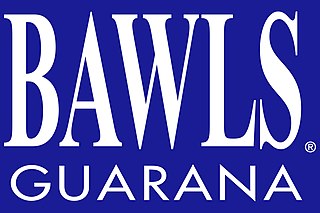
Bawls is a non-alcoholic, highly-caffeinated soft drink.

Nehi is a flavored soft drink that originated in the United States. It was introduced in 1924 by Chero-Cola/Union Bottle Works and founded by Claud A. Hatcher, a Columbus, Georgia, grocer who began bottling ginger ale and root beer in 1905.
The Double Cola Company is a Chattanooga, Tennessee-based manufacturer of soft drinks.

Sun Drop is a citrus-flavored soft drink produced by Keurig Dr Pepper with a yellowish-green color. Among soft drinks, it is known for its high caffeine content. Orange juice is an ingredient in the drink, and remaining pulp matter from the orange juice provides some of the soft drink's taste and appearance. Sun Drop competes primarily against the Coca-Cola Company's Mello Yello and PepsiCo's Mountain Dew.
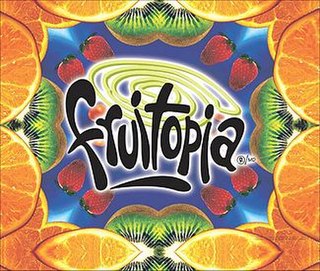
Fruitopia is a fruit-flavored drink introduced by the Coca-Cola Company's successful Minute Maid brand in 1994 and targeted at teens and young adults. According to New York Times business reports, it was invented as part of a push by Minute Maid to capitalize on the success of Snapple and other flavored tea drinks. The brand gained substantial hype in the mid-1990s before enduring lagging sales by the decade's end. While still available in Canada and Australia as a juice brand, in 2003, Fruitopia was phased out in most of the United States where it had struggled for several years. However, select flavors have since been revamped under Minute Maid. Use of the Fruitopia brand name continues through various beverages in numerous countries, including some McDonald's restaurant locations in the United States, which carry the drink to this day.
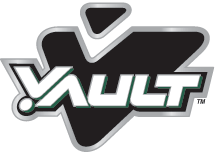
Vault was a sweetened energy drink and carbonated beverage that was released by The Coca-Cola Company in June 2005 and marketed until December 2011. It was touted as an artificially flavored hybrid energy soda. Coca-Cola was marketing Vault as a combination with the slogan "Drinks like a soda, kicks like an energy drink," as well as "The Taste. The Quench. The Kick." "Get it done, and then some", "Chug & Charge", and "Get to it!".

Towne Club is a local brand of soft drink produced and sold primarily in the metropolitan area of Detroit, Michigan. It is also sold in Flint, Grand Rapids, Lansing, Kalamazoo, Saginaw, Traverse City, Tampa, Florida, Indianapolis, Indiana, Cleveland and Toledo, Ohio at one time.
Embotelladora Don Jorge S.A.C. is a corporation involved in the manufacturing, distribution and marketing of nonalcoholic and alcoholic beverages based in Lima, Peru. Its headquarters are located in the San Miguel District, Lima.

Simba was a sugar-sweetened, lemon-flavored citrus "thirst-quenching" soft drink created by The Coca-Cola Company. The drink was named "Simba" in the Bantu language Swahili. The soft drink was heavily researched, test marketed in 1968, introduced nationally in 1969 but ultimately withdrawn in 1972 after sales did not reach expectations.